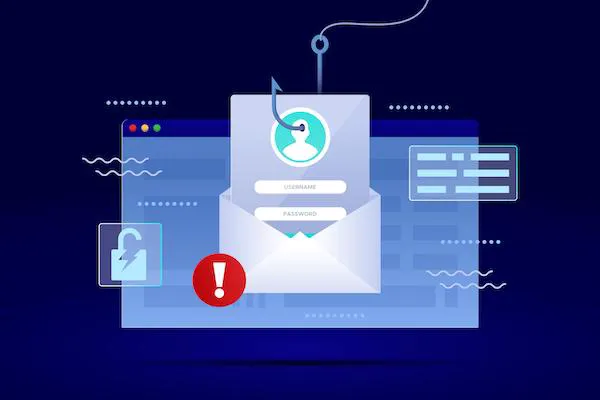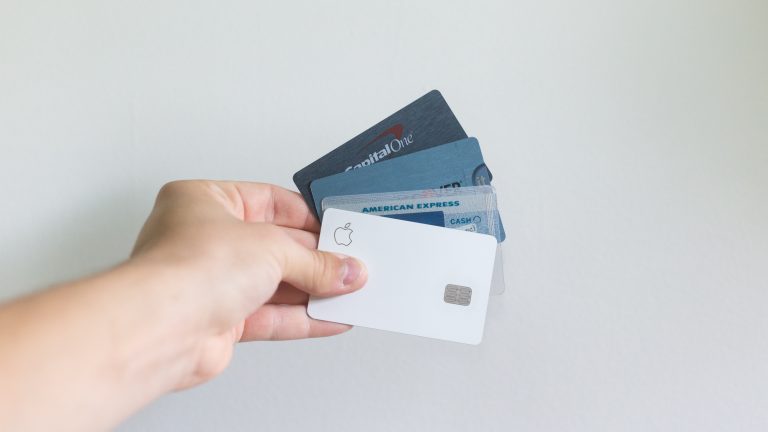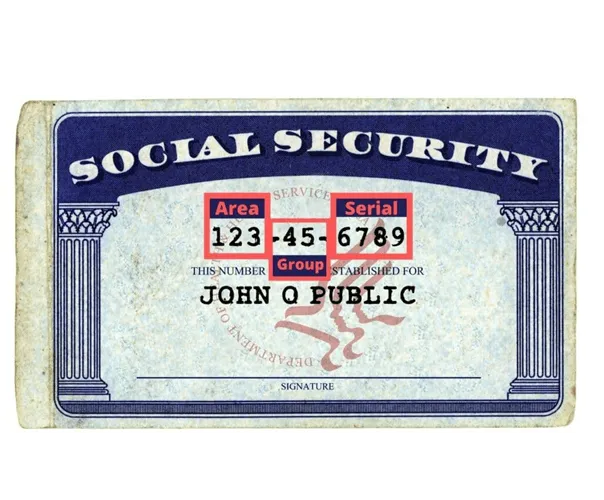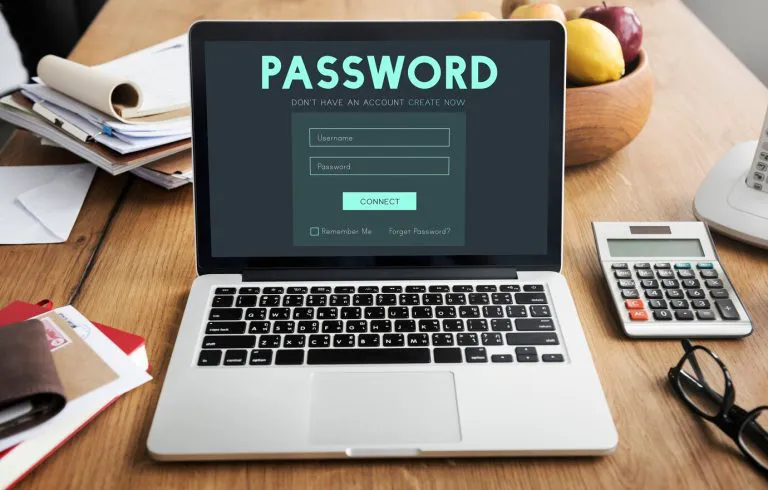What to Do When Someone Applied for New Credit in My Name


Aura – Your 24/7 Identity Theft Protection Solution
- $1M coverage
- 24/7 expert fraud support
- Proactive protection for your assets, identity, & family
“It started like any other day – until I received an alarming call that changed everything. “We’re calling about a delinquent credit card account in your name,” the voice on the other end explained.”
This chilling account comes from Christopher, an identity theft victim who agreed to share his story. As Christopher describes, that single call set off a nightmare of fraudulent charges and months of work to repair his credit.
While Christopher never expected to deal with credit card fraud, it’s a growing threat that affected 409,981 Americans in 2022 alone, according to the FTC. If you suspect you are a victim, here are some expert-recommended steps you can take to spot any suspicious activity and start undoing the damage.
Table of contents
Someone opened a new credit card in my name. Is it identity theft or error?

Just because an unfamiliar account appears doesn’t necessarily mean fraud has occurred. As Christopher learned, banks sometimes input data incorrectly and open credit cards in the wrong name. Credit bureaus can also accidentally merge files, combining accounts from separate people.
To determine if the account was truly an error, Christopher took a methodical approach to investigating it further:
- He checked that he wasn’t receiving any bills, statements, or correspondence about the account. A lack of mail pointed to a potential mistake.
- He examined the account application date and history. Fraudulent new accounts often have recent origination dates.
- He reviewed the personal details on the account like SSN, address, full name spelling etc. Any discrepancies could indicate an innocent mix-up.
- He checked his existing credit cards for signs of unauthorized charges. Thieves sometimes make small test charges before larger ones.
- He ordered a free credit report to check for other unknown accounts or inquiries. Additional discrepancies can signal wider identity theft.
- He examined if any of his info like SSN or mail was compromised recently. Stolen data can enable identity thieves to open new fraudulent accounts.
By thoroughly scrutinizing the account characteristics and his own records, Christopher aimed to uncover as much evidence as possible on whether this was indeed identity theft at play.
Distinguishing between an error and fraud is crucial, because it determines how you navigate the situation. If it appears to be a bureau mistake, submitting documentation can fix the problem. But for identity theft, you need to act and act fast to shut down the access and minimize potential damage. Below are the steps you can take.
What to do if you’re a victim of credit card fraud
Step 1. Contact the credit card company

If a strange new credit card pops up in your name, exercise some healthy skepticism as it may indicate fraud. Don’t trust any sketchy emails or letters about it – those could be scams trying to trick you.
Instead, look up the official customer service number on the credit card company’s website and call it yourself. Explain you just discovered an account opened without your permission and insist that they immediately freeze or close it to prevent fraudulent charges. The issuer will likely dig into their records and verify your identity through confirmation questions. This is to be expected – they need to confirm you are the real account holder.
Remember that you may need to call multiple times to fully address the situation, so document all conversations. Request details on when and how the application was submitted, as this could help identify the source of the fraud. If they won’t close the account before investigating it, ask them to at least put a hold or freeze on any new charges.
Step 2. Contact the three national credit bureaus

After contacting the credit card company, your next step is to get in touch with the three major credit bureaus – Equifax, Experian, and TransUnion. This ensures they are aware of the identity theft situation and can help safeguard your credit report.
1. Freeze your credit
A credit freeze, also called a security freeze, blocks access to your credit report and prevents new accounts from being opened in your name without your permission. With a freeze in place, any request for a new loan or account will be automatically declined, effectively stopping scammers from damaging your credit.
To activate a credit freeze, contact each of the three major credit bureaus separately:
- Equifax – Call 1-800-349-9960 or freeze online
- Experian – Call 1-888-397-3742 or freeze online
- TransUnion – Call 1-888-909-8872 or freeze online
Keep in mind a credit freeze remains in effect until you choose to remove it. Placing, temporarily lifting, and permanently removing a freeze are free and do not impact your credit score.
2. Place a fraud alert on your credit report
Also, place an initial 90-day fraud alert on your credit file. This signals to potential lenders and creditors that they must verify your identity before issuing new credit in your name.
To request a fraud alert on your credit report, all you need to do is contact one of the bureaus, and then the alert will apply to the other two.
- Equifax: Call 1-888-766-0008 or place Fraud or Active Duty Alerts online
- Experian: Call 1-888-397-3742 or add a fraud alert online
- TransUnion: Call 1-800-680-7289 or add a fraud alert online
A fraud alert lasts for one year and can be removed at any time. Neither action will affect your credit score.
Step 3. File reports with the FTC and local police
The next move is filing cases with the FTC and your local police department. Submitting these official reports provides the receipts you need to prove your identity was stolen. This makes it easier to get fraudulent accounts removed, since you have government documents verifying that some scammer – not you – opened them. These reports also help convince skeptical credit bureaus and banks that you’re telling the truth. They validate that you’re an innocent victim of impersonation, not someone making up false claims.
1. To file a report with the FTC:

- Submit a report through the FTC’s website at www.identitytheft.gov or call their hotline at 1-877-FTC-HELP (1-877-382-4357).
- When finished, print and save a copy of the full identity theft report generated. You’ll need to provide this to credit bureaus and companies as proof.
- Make additional copies of the report if needed.
2. To file a police report:
- Take your FTC identity theft report to your local police station and file an in-person report. Bring identification and proof of your address as well.
- Obtain a copy of the official police report or at minimum the report number. This further verifies the crime to creditors and banks.
- If the identity theft occurred in a different city than where you live, you may need to file with that police department instead or as well.
Step 4. Don’t pay any fraudulent debt
If you find unauthorized accounts or charges opened in your name, do not pay them. Paying any amount of fraudulent debt can make it harder to remove.
By law, you cannot be held liable for criminal charges you did not authorize. Paying fraudulent debt can legalize it as yours. So stand firm if collectors pressure you to pay. Dispute the fraudulent accounts immediately. In the meantime, keep records of any collection letters or calls as this helps investigators trace criminality.
Step 5. Increase security

After identity theft, it’s natural to feel vulnerable. But strengthening your security can help restore a sense of control. You can start with the basics like updating passwords and turning on two-factor authentication for key accounts. Also, remember to review all your account statements closely and report them if any suspicious activity occurs.
If you don’t want the hassle of trying to manage all these precautions yourself, you can sign up for an identity theft protection service like Aura. Aura’s team of experts will handle monitoring your credit, accounts, and personal information 24/7.
With Aura, you get:
- Dark web watch: It isn’t just your SSN, but other types of PII such as your banking details, email passwords, online accounts, and address are also valuable targets to criminals. You can run a one-time dark web scan or start Aura’s real-time monitoring to check if your personal information is at risk.
- Credit monitoring – Aura continuously monitors your credit reports from the three major credit agencies – TransUnion, Equifax, and Experian, and alerts you if any unusual activity is detected.
- Password Manager – Weak and easily guessable passwords are an open invitation to cyberattacks. Aura’s password manager helps you generate complex, lengthy, and one-of-a-kind passwords, eliminating the need for you to memorize them.
- Antivirus – The antivirus software gives you 24/7 protection from malware, ransomware, keyloggers, and more.
- VPN – The military-grade VPN gives you high levels of anonymity and privacy to browse, shop, and bank online.
- Family identity protection – The family plan extends identity protection to five family members.
- A $1,000,000 insurance policy – In the unlikely event that disaster strikes, Aura’s insurance policy wraps you in a $1 million safety net to help soften identity theft’s worst blows.
Here is how to use Aura to run an in-depth dark web scan to see if your personal information has leaked onto the shadier sides of the internet or other places where it shouldn’t be:
- Go to the Aura Free Scan page.
- Enter your email address and click View Results.

- Wait a few seconds as Aura combs through the dark corners of the web to search for possible exposure of your personal data.

- You can start the 14-day free trial to access the full report, along with its full array of identity protection tools.

Credit:
Illustration by Anna A from Ouch!
Image by Freepik














